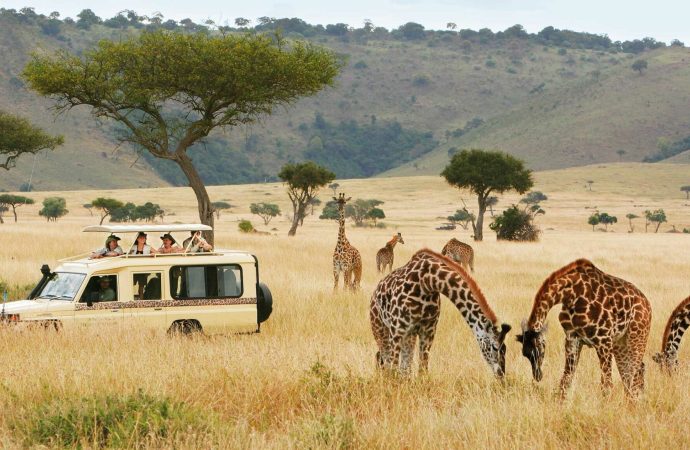Planning a wildlife safari is an exhilarating experience that brings you closer to nature and its incredible creatures. However, it is essential to approach this adventure with a sense of responsibility and respect for the environment and the wildlife that inhabits it. In this comprehensive guide, we will explore the key steps and considerations for
Planning a wildlife safari is an exhilarating experience that brings you closer to nature and its incredible creatures. However, it is essential to approach this adventure with a sense of responsibility and respect for the environment and the wildlife that inhabits it. In this comprehensive guide, we will explore the key steps and considerations for planning a responsible wildlife safari, ensuring that your journey is both enjoyable and sustainable.
Understanding Responsible Wildlife Safaris
Before delving into the specifics of planning a responsible wildlife safari, it is crucial to understand what this entails. A responsible wildlife safari prioritizes the well-being of wildlife, the preservation of natural habitats, and the support of local communities. It involves making ethical choices that minimize negative impacts on the environment and promote conservation efforts.

Image by: yandex.com
Choose a Reputable Safari Operator
The first and most critical step in planning a responsible wildlife safari is selecting a reputable safari operator. Look for operators that have a strong commitment to conservation and ethical practices. Research their credentials, read reviews, and ask about their conservation initiatives. Reputable operators often work closely with local communities and conservation organizations to ensure that their activities benefit both wildlife and people.
Select a Sustainable Destination
Choosing the right destination is another vital aspect of planning a responsible wildlife safari. Opt for destinations that prioritize conservation and have well-managed wildlife reserves or national parks. Research the destination’s conservation policies, wildlife protection measures, and efforts to combat poaching. Destinations with established eco-tourism practices are more likely to offer responsible safari experiences.
Plan Your Itinerary Carefully
- Wildlife Viewing Etiquette: Respect wildlife by maintaining a safe distance and avoiding disruptive behavior. Follow the guidelines provided by your safari guide.
- Minimize Environmental Impact: Choose eco-friendly accommodations and transportation options. Reduce waste, conserve water, and avoid single-use plastics.
- Support Local Communities: Include visits to local communities and support businesses that contribute to conservation efforts. This can include purchasing locally-made crafts or dining at locally-owned restaurants.
Educate Yourself
Educate yourself about the wildlife and ecosystems you will encounter on your safari. Understanding the behavior and needs of different species will enhance your experience and help you appreciate the importance of conservation. Additionally, learn about the cultural and social aspects of the local communities you will visit.

Image by: yandex.com
Pack Responsibly
Packing responsibly is essential for a sustainable safari. Consider the following tips:
- Eco-Friendly Gear: Use reusable water bottles, eco-friendly toiletries, and biodegradable products.
- Appropriate Clothing: Pack lightweight, neutral-colored clothing that blends with the environment. Avoid bright colors that may disturb wildlife.
- Photography Equipment: Bring appropriate photography gear to capture memories without causing harm to wildlife. Avoid using flash photography, which can startle animals.
Follow Ethical Wildlife Viewing Practices
During your safari, adhere to ethical wildlife viewing practices:
- Respect Wildlife: Maintain a safe distance and avoid approaching or feeding animals. Do not disturb their natural behaviors.
- Listen to Your Guide: Your safari guide is knowledgeable about the best practices for wildlife viewing. Follow their instructions and guidelines.
- Leave No Trace: Ensure that you leave the environment as you found it. Dispose of waste properly and avoid damaging vegetation.
Support Conservation Efforts
Contributing to conservation efforts is a crucial part of planning a responsible wildlife safari. Consider the following ways to support conservation:
- Donations: Donate to reputable conservation organizations that work to protect wildlife and their habitats.
- Volunteer: Participate in volunteer programs or citizen science projects that contribute to conservation research and initiatives.
- Advocacy: Raise awareness about conservation issues and advocate for policies that protect wildlife and natural habitats.

Image by: yandex.com
Conclusion
Planning a responsible wildlife safari requires careful consideration and a commitment to ethical practices. By choosing reputable operators, selecting sustainable destinations, and adhering to ethical wildlife viewing practices, you can ensure that your safari experience is both enjoyable and beneficial for the environment and local communities. Remember, a responsible wildlife safari is not just about observing nature; it is about actively contributing to the preservation of our planet’s incredible biodiversity.
















